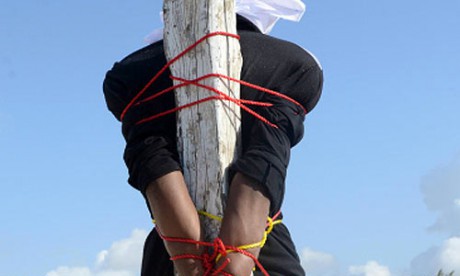As Indonesia prepares to execute up to 11 prisoners, including two Australians, a Brazilian and a Nigerian national, amid international uproar, the spotlight has been thrown on the use of the death penalty in the country.
There are dozens more prisoners on death row and the government has declared there will be no mercy for those convicted of drug offences, meaning more executions are likely.
The Guardian has spoken to a police officer who has been part of the firing squad which operates on the prison island, Nusa Kambangan.
His story is one that reveals the grim reality of Indonesia’s justice system but also the conflicting emotions of those responsible for upholding it.
Pulling the trigger is the easy part, the officer says as he contemplates the executions which are to come.
The worst part is the human touch, he says, the connection with those who are about to die.
The executioner has to lace the prisoner’s limbs, hands and feet to a cross-shaped pole with thick rope. It is that final moment of brutal intimacy that haunts.
“The mental burden is heavier for the officers that are responsible for handling the prisoners rather than shooting them,” he says. “Because those officers are involved in picking them up, and tying their hands together, until they are gone.”
The officer – a young man who wanted to remain anonymous because of the sensitivity of his role – is part of a wing of the Indonesian police corps known as the Mobile Brigade (“Brimob”).
The brigade carries out the executions on top of its regular duties. They are not full-time executioners but rather special police officers assigned to the job.
They are paid less than $100 on top of their existing salary to carry out their grim task. Continue reading
Sources
- The Guardian
- Image: New Vision
